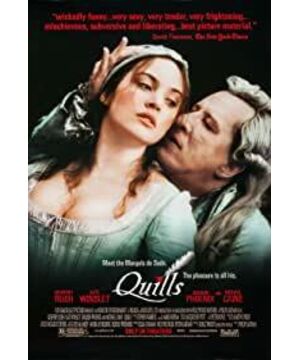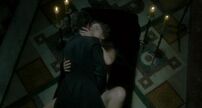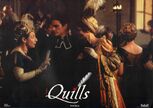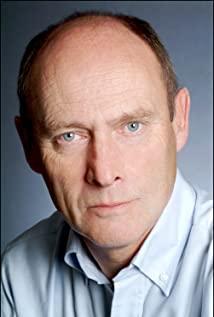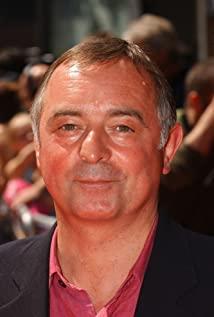The film presents several paradoxes. First, after the quill was taken away, Sade transmitted the novel orally through the hole in the wall, but the medium of transmission was a madman. To what extent can Sade's novel be authentic in the madman's retelling? Does this imply the inevitable existence of literature being misread? Second, the madmen ignited the lunatic asylum and killed the beautiful Medellin under the enlightenment of Sade literature. Here, the fire in the lunatic asylum echoes the drama that Sade specially directed for doctors. Sade's literature enlightens and just releases desire, but in turn, the released desire becomes the source of real horror, creating blood. If Sade's novel inspired Simon to escape from the doctor and begin to seek his own desires, then who caused the death of the innocent Medellin? Sade finally devoured the cross and died, would he feel guilty for Medlin's death and his inexhaustible desire to write? THAAD embraces evil and embraces desire and embraces the devil, but the commoners are not THAAD, the evil that the commoners are freed will have nowhere to be placed, and can only spew like fire. So, under the inevitable misreading, to what extent can enlightenment work? How can people "stand up"? But these were all resolved in the end. At the end of the film, the insane asylum was unusually calm. The doctor took over the insane asylum, and the Sade literature was accepted by the world. In just one year, all problems were resolved. Peaceful. But it is precisely this frivolity that mocks history once again. If one year ago, desire was still struggling and the spirit of Thad was still resisting, then now all the solid things have vanished.
View more about Quills reviews


